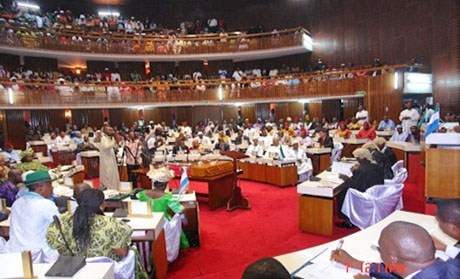Calling on the government of Sierra Leone to reject impunity in Africa
Campaign for Human Rights and Development Sierra Leone (CHRDSL) notes with considerable alarm the African Union’s (AU) endorsement of immunity for serving heads of state and other senior government officials, or “ high level officials” having recently agreed to a Protocol that would bar their prosecution for grave crimes.
Our Africa Leaders attending the 23rd African Union (AU) meeting in Malabo, Equatorial Guinea, early this week, approved an expansion of the jurisdiction of the African Court on Human and People’s Rights to include worthy subjects such as trafficking in persons and drugs, terrorism, piracy, and unconstitutional changes of government and corruption—along with war crimes, crimes against humanity and genocide. The agreement vests the African Court of Justice and Human Rights with jurisdiction to prosecute those responsible for crimes such as genocide, crimes against humanity and war crimes, among others, but simultaneously provides that serving heads of state and senior government officials may not be prosecuted. We believe this decision represents a backward step in the desire to effect adherence to the rule of law and fundamental freedoms for African citizens across the continent. This agreement by AU leaders creates contradictory legal norms,’ ‘It contradicts it’s own founding charter, which requires that it protects human and peoples’ rights. It disregards its own ‘Panel of the Wise’, which, recommended the building of institutions that promote impartiality, accountability and fairness on account of well-founded concerns for impunity on the continent which has had the effect of promoting corruption and violations of human rights on the continent. An institution that exempts heads of state and government officials from responsibility is an affront to the rule of law and fundamental freedoms.
We consider that far from advancing accountability and promoting the rule of law on the African continent, such a move represents a retrogressive step in the fight against impunity and human rights violations on the continent. At a time when the Continent is facing considerable challenges to promote and maintain adherence to the rule of law thereby demonstrating that there is accountability for human rights abuses and violations, the provision generates perverse incentives for abusive leaders to remain in power so that they are shielded from prosecution. It further provides for government officials to willingly lend themselves to participate in human rights violations whilst being assured of the protection of law. It ignores the obvious reality that these types of massive, systematic crimes are generally perpetrated by those who wield greatest power. Those most likely to commit these crimes are given absolute protection from prosecution. CHRDSL is deeply disappointed and concerned that our African heads of state and government have failed to provide the leadership needed to grantee justice for victims of crimes under international human rights and other international law on the continent.
At a time when the African continent is struggling to demonstrate that there is accountability for serious human rights violations and abuses on the continent, this decision cannot be justified on account of the tendency to undermine the integrity of the African Court of Justice and Human Rights, even before it becomes operational. We are deeply disappointed that African heads of state and government have failed to provide the leadership needed to ensure justice for victims of crimes under international law, opting instead to shield themselves and future generations and leaders from prosecution for serious abuses.” The decision by the African Union places it in direct conflict with aspirations of protection of human rights and represents an uncertain future for international justice in Africa on account of the fact that the Rome Statute of the International Criminal Court (ICC), provides that the ICC rules ‘shall apply equally to all persons without any distinction based on official capacity. In particular, official capacity as a Head of State or Government, a member of a Government or parliament, an elected representative or a government official shall in no case exempt a person from criminal responsibility.’ (Article 27). We say no to immunity for graves crimes, no matter the position of the accused as this represents a bedrock principle of the ICC Rome Statute—to which 34 out of 54 AU members are fully signed up.
The CHRDSL hereby call upon The Government of Sierra Leone not to sign or ratify the Protocol as currently drafted.
Abdul M Fatoma, Chief Executive, Campaign for Human Rights and Development Sierra Leone (CHRDSL)
Stay with Sierra Express Media, for your trusted place in news!
© 2014, https:. All rights reserved.





